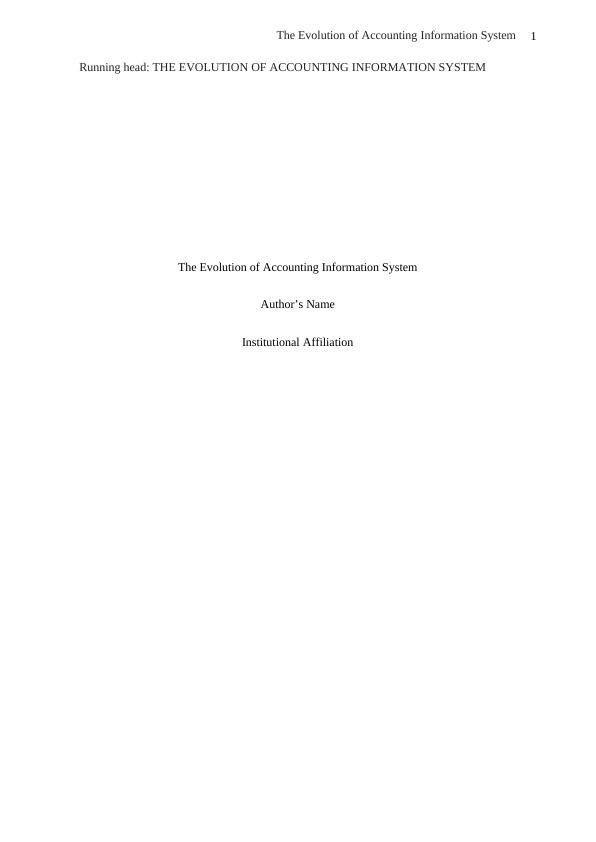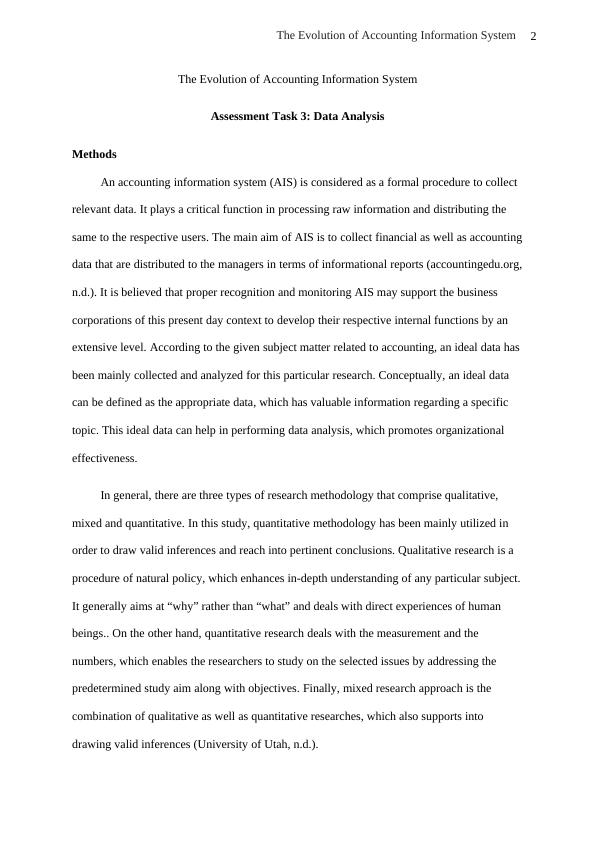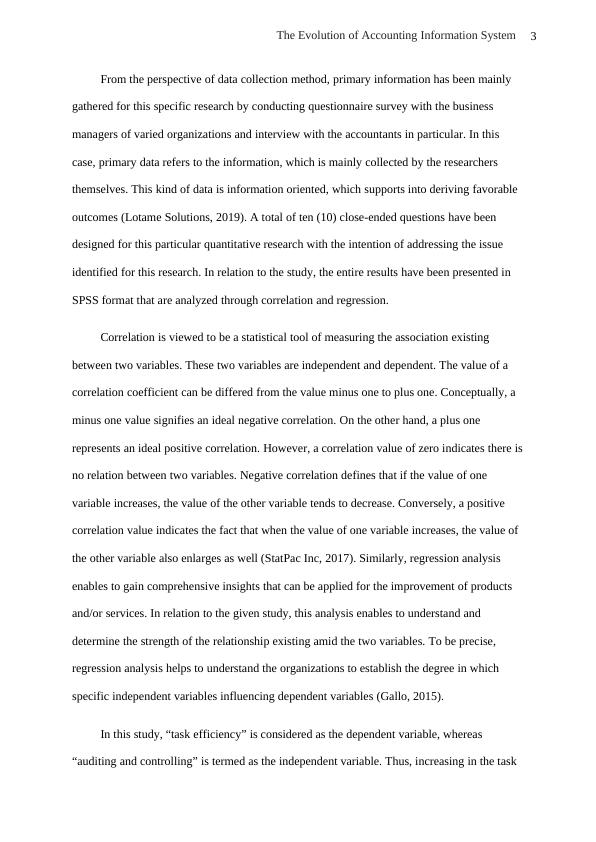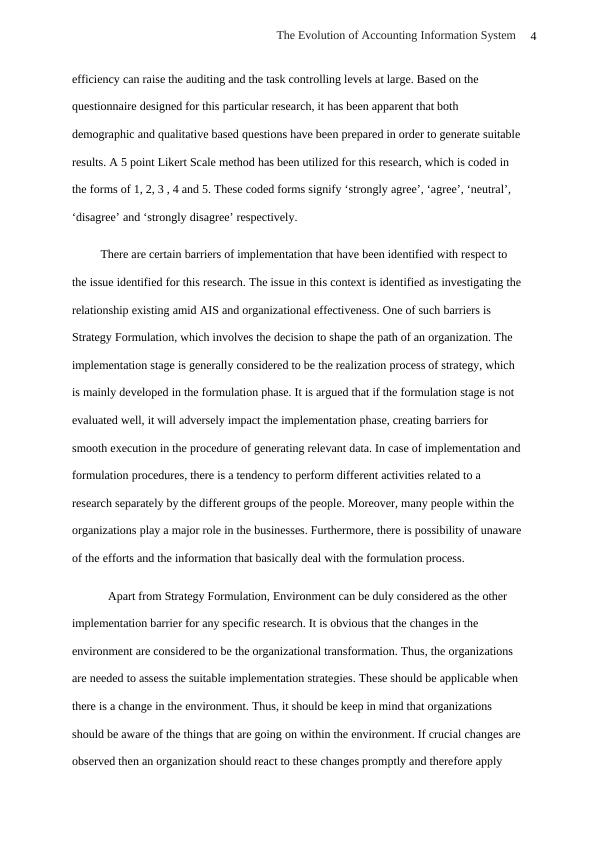The Evolution of Accounting Information System
The assignment is to prepare a final report on the evolution of accounting information systems, including topics such as traditional AIS, relationship with organizational effectiveness, management accounting tasks, challenges faced, and accounting benefits.
16 Pages3312 Words92 Views
Added on 2022-12-14
About This Document
This document discusses the evolution of accounting information systems (AIS) and its impact on organizational effectiveness. It explores the methods of data analysis, including correlation and regression, and identifies barriers to implementation. The study concludes that AIS can enhance auditing and controlling activities in organizations.
The Evolution of Accounting Information System
The assignment is to prepare a final report on the evolution of accounting information systems, including topics such as traditional AIS, relationship with organizational effectiveness, management accounting tasks, challenges faced, and accounting benefits.
Added on 2022-12-14
ShareRelated Documents
End of preview
Want to access all the pages? Upload your documents or become a member.
Assignment on Human Inference Theory
|11
|2843
|82
Define Research
|6
|829
|37
Data Insights: Role of Quantitative and Qualitative Research in Modern Marketing
|18
|1916
|255
Reflective Report on Qualitative and Quantitative Research Approaches
|11
|3216
|457
Book Review
|5
|712
|100
Research Methodology Assignment
|21
|4343
|39




